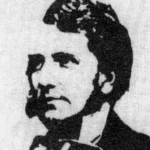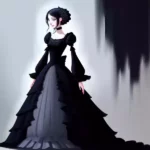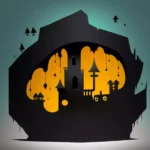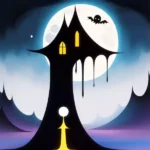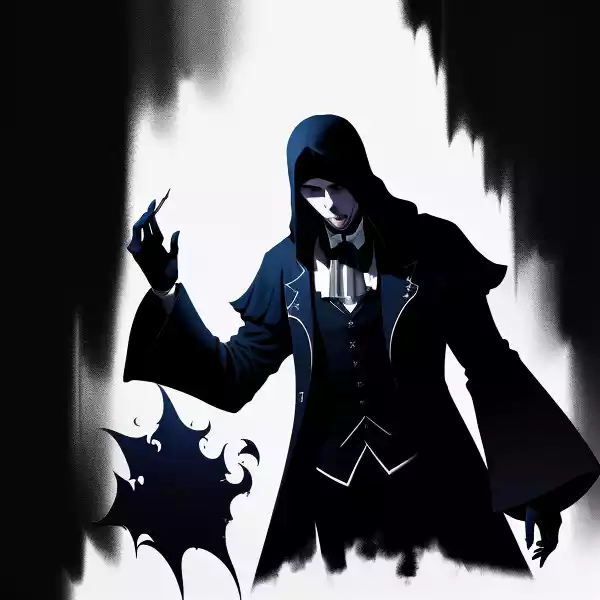 | |
Strange Event in the Life of Schalken the Painter | |
| Author | Joseph Sheridan Le Fanu |
|---|---|
| Published |
1839
|
| Language | English |
| Nationality | Irish |
| Genre | Gothic Fiction, Supernatural |
1839 Short Story
Strange Event in the Life of Schalken the Painter
Strange Event in the Life of Schalken the Painter is an English Gothic Fiction, Supernatural short story by Irish writer Joseph Sheridan Le Fanu. It was first published in 1839.
Strange Event in the Life of Schalken the Painter
by Joseph Sheridan Le Fanu
Being a Seventh Extract from the Legacy of the late Francis Purcell, P. P. of Drumcoolagh.
You will no doubt be surprised, my dear friend, at the subject of the following narrative. What had I to do with Schalken, or Schalken with me? He had returned to his native land, and was probably dead and buried, before I was born; I never visited Holland nor spoke with a native of that country. So much I believe you already know. I must, then, give you my authority, and state to you frankly the ground upon which rests the credibility of the strange story which I am, about to lay before you.
I was acquainted, in my early days, with a Captain Vandael, whose father had served King William in the Low Countries, and also in my own unhappy land during the Irish campaigns. I know not how it happened that I liked this man’s society, spite of his politics and religion: but so it was; and it was by means of the free intercourse to which our intimacy gave rise that I became possessed of the curious tale which you are about to hear.
I had often been struck, while visiting Vandael, by a remarkable picture, in which, though no connoisseur myself, I could not fail to discern some very strong peculiarities, particularly in the distribution of light and shade, as also a certain oddity in the design itself, which interested my curiosity. It represented the interior of what might be a chamber in some antique religious buildingthe foreground was occupied by a female figure, arrayed in a species of white robe, part of which is arranged so as to form a veil. The dress, however, is not strictly that of any religious order. In its hand the figure bears a lamp, by whose light alone the form and face are illuminated; the features are marked by an arch smile, such as pretty women wear when engaged in successfully practising some roguish trick; in the background, and, excepting where the dim red light of an expiring fire serves to define the form, totally in the shade, stands the figure of a man equipped in the old fashion, with doublet and so forth, in an attitude of alarm, his hand being placed upon the hilt of his sword, which he appears to be in the act of drawing.
‘There are some pictures,’ said I to my friend, ‘which impress one, I know not how, with a conviction that they represent not the mere ideal shapes and combinations which have floated through the imagination of the artist, but scenes, faces, and situations which have actually existed. When I look upon that picture, something assures me that I behold the representation of a reality.’
Vandael smiled, and, fixing his eyes upon the painting musingly, he said:
‘Your fancy has not deceived you, my good friend, for that picture is the record, and I believe a faithful one, of a remarkable and mysterious occurrence. It was painted by Schalken, and contains, in the face of the female figure, which occupies the most prominent place in the design, an accurate portrait of Rose Velderkaust, the niece of Gerard Douw, the first and, I believe, the only love of Godfrey Schalken. My father knew the painter well, and from Schalken himself he learned the story of the mysterious drama, one scene of which the picture has embodied. This painting, which is accounted a fine specimen of Schalken’s style, was bequeathed to my father by the artist’s will, and, as you have observed, is a very striking and interesting production.’
I had only to request Vandael to tell the story of the painting in order to be gratified; and thus it is that I am enabled to submit to you a faithful recital of what I heard myself, leaving you to reject or to allow the evidence upon which the truth of the tradition depends, with this one assurance, that Schalken was an honest, blunt Dutchman, and, I believe, wholly incapable of committing a flight of imagination; and further, that Vandael, from whom I heard the story, appeared firmly convinced of its truth.
There are few forms upon which the mantle of mystery and romance could seem to hang more ungracefully than upon that of the uncouth and clownish Schalkenthe Dutch boorthe rude and dogged, but most cunning worker in oils, whose pieces delight the initiated of the present day almost as much as his manners disgusted the refined of his own; and yet this man, so rude, so dogged, so slovenly, I had almost said so savage, in mien and manner, during his after successes, had been selected by the capricious goddess, in his early life, to figure as the hero of a romance by no means devoid of interest or of mystery.
Who can tell how meet he may have been in his young days to play the part of the lover or of the herowho can say that in early life he had been the same harsh, unlicked, and rugged boor that, in his maturer age, he provedor how far the neglected rudeness which afterwards marked his air, and garb, and manners, may not have been the growth of that reckless apathy not unfrequently produced by bitter misfortunes and disappointments in early life?
These questions can never now be answered.
We must content ourselves, then, with a plain statement of facts, or what have been received and transmitted as such, leaving matters of speculation to those who like them.
When Schalken studied under the immortal Gerard Douw, he was a young man; and in spite of the phlegmatic constitution and unexcitable manner which he shared, we believe, with his countrymen, he was not incapable of deep and vivid impressions, for it is an established fact that the young painter looked with considerable interest upon the beautiful niece of his wealthy master.
Rose Velderkaust was very young, having, at the period of which we speak, not yet attained her seventeenth year, and, if tradition speaks truth, possessed all the soft dimpling charms of the fail; light-haired Flemish maidens. Schalken had not studied long in the school of Gerard Douw, when he felt this interest deepening into something of a keener and intenser feeling than was quite consistent with the tranquillity of his honest Dutch heart; and at the same time he perceived, or thought he perceived, flattering symptoms of a reciprocity of liking, and this was quite sufficient to determine whatever indecision he might have heretofore experienced, and to lead him to devote exclusively to her every hope and feeling of his heart. In short, he was as much in love as a Dutchman could be. He was not long in making his passion known to the pretty maiden herself, and his declaration was followed by a corresponding confession upon her part.
Schalken, however, was a poor man, and he possessed no counterbalancing advantages of birth or position to induce the old man to consent to a union which must involve his niece and ward in the strugglings and difficulties of a young and nearly friendless artist. He was, therefore, to wait until time had furnished him with opportunity, and accident with success; and then, if his labours were found sufficiently lucrative, it was to be hoped that his proposals might at least be listened to by her jealous guardian. Months passed away, and, cheered by the smiles of the little Rose, Schalken’s labours were redoubled, and with such effect and improvement as reasonably to promise the realisation of his hopes, and no contemptible eminence in his art, before many years should have elapsed.
The even course of this cheering prosperity was, however, destined to experience a sudden and formidable interruption, and that, too, in a manner so strange and mysterious as to baffle all investigation, and throw upon the events themselves a shadow of almost supernatural horror.
Schalken had one evening remained in the master’s studio considerably longer than his more volatile companions, who had gladly availed themselves of the excuse which the dusk of evening afforded, to withdraw from their several tasks, in order to finish a day of labour in the jollity and conviviality of the tavern.
But Schalken worked for improvement, or rather for love. Besides, he was now engaged merely in sketching a design, an operation which, unlike that of colouring, might be continued as long as there was light sufficient to distinguish between canvas and charcoal. He had not then, nor, indeed, until long after, discovered the peculiar powers of his pencil, and he was engaged in composing a group of extremely roguish-looking and grotesque imps and demons, who were inflicting various ingenious torments upon a perspiring and pot-bellied St. Anthony, who reclined in the midst of them, apparently in the last stage of drunkenness.
The young artist, however, though incapable of executing, or even of appreciating, anything of true sublimity, had nevertheless discernment enough to prevent his being by any means satisfied with his work; and many were the patient erasures and corrections which the limbs and features of saint and devil underwent, yet all without producing in their new arrangement anything of improvement or increased effect.
The large, old-fashioned room was silent, and, with the exception of himself, quite deserted by its usual inmates. An hour had passednearly twowithout any improved result. Daylight had already declined, and twilight was fast giving way to the darkness of night. The patience of the young man was exhausted, and he stood before his unfinished production, absorbed in no very pleasing ruminations, one hand buried in the folds of his long dark hair, and the other holding the piece of charcoal which had so ill executed its office, and which he now rubbed, without much regard to the sable streaks which it produced, with irritable pressure upon his ample Flemish inexpressibles.
‘Pshaw!’ said the young man aloud, ‘would that picture, devils, saint, and all, were where they should bein hell!’
A short, sudden laugh, uttered start
lingly close to his ear, instantly responded to the ejaculation.
The artist turned sharply round, and now for the first time became aware that his labours had been overlooked by a stranger.
Within about a yard and a half, and rather behind him, there stood what was, or appeared to be, the figure of an elderly man: he wore a short cloak, and broad-brimmed hat with a conical crown, and in his hand, which was protected with a heavy, gauntlet-shaped glove, he carried a long ebony walking-stick, surmounted with what appeared, as it glittered dimly in the twilight, to be a massive head of gold, and upon his breast, through the folds of the cloak, there shone what appeared to be the links of a rich chain of the same metal.
The room was so obscure that nothing further of the appearance of the figure could be ascertained, and the face was altogether overshadowed by the heavy flap of the beaver which overhung it, so that not a feature could be discerned. A quantity of dark hair escaped from beneath this sombre hat, a circumstance which, connected with the firm, upright carriage of the intruder, proved that his years could not yet exceed threescore or thereabouts.
There was an air of gravity and importance about the garb of this person, and something indescribably odd, I might say awful, in the perfect, stone-like movelessness of the figure, that effectually checked the testy comment which had at once risen to the lips of the irritated artist. He therefore, as soon as he had sufficiently recovered the surprise, asked the stranger, civilly, to be seated, and desired to know if he had any message to leave for his master.
‘Tell Gerard Douw,’ said the unknown, without altering his attitude in the smallest degree, ‘that Mynher Vanderhauseny of Rotterdam, desires to speak with him to-morrow evening at this hour, and, if he please, in this room, upon matters of weightthat is all. Good-night.’
The stranger, having finished this message, turned abruptly, and, with a quick but silent step, quitted the room, before Schalken had time to say a word in reply.
The young man felt a curiosity to see in what direction the burgher of Rotterdam would turn on quitting the studio, and for that purpose he went directly to the window which commanded the door.
A lobby of considerable extent intervened between the inner door of the painter’s room and the street entrance, so that Schalken occupied the post of observation before the old man could possibly have reached the street.
He watched in vain, however. There was no other mode of exit.
Had the old man vanished, or was he lurking about the recesses of the lobby for some bad purpose? This last suggestion filled the mind of Schalken with a vague horror, which was so unaccountably intense as to make him alike afraid to remain in the room alone and reluctant to pass through the lobby.
However, with an effort which appeared very disproportioned to the occasion, he summoned resolution to leave the room, and, having double-locked the door and thrust the key in his pocket, without looking to the right or left, he traversed the passage which had so recently, perhaps still, contained the person of his mysterious visitant, scarcely venturing to breathe till he had arrived in the open street.
‘Mynher Vanderhausen,’ said Gerard Douw within himself, as the appointed hour approached, ‘Mynher Vanderhausen of Rotterdam! I never heard of the man till yesterday. What can he want of me? A portrait, perhaps, to be painted; or a younger son or a poor relation to be apprenticed; or a collection to be valued; or pshaw I there’s no one in Rotterdam to leave me a legacy. Well, whatever the business may be, we shall soon know it all.’
It was now the close of day, and every easel, except that of Schalken, was deserted. Gerard Douw was pacing the apartment with the restless step of impatient expectation, every now and then humming a passage from a piece of music which he was himself composing; for, though no great proficient, he admired the art; sometimes pausing to glance over the work of one of his absent pupils, but more frequently placing himself at the window, from whence he might observe the passengers who threaded the obscure by-street in which his studio was placed.
‘Said you not, Godfrey,’ exclaimed Douw, after a long and fruitless gaze from his post of observation, and turning to Schalken’said you not the hour of appointment was at about seven by the clock of the Stadhouse?’
‘It had just told seven when I first saw him, sir,’ answered the student.
‘The hour is close at hand, then,’ said the master, consulting a horologe as large and as round as a full-grown orange. ‘Mynher Vanderhausen, from Rotterdam is it not so?’
‘Such was the name.’
‘And an elderly man, richly clad?’ continued Douw.
‘As well as I might see,’ replied his pupil; ‘he could not be young, nor yet very old neither, and his dress was rich and grave, as might become a citizen of wealth and consideration.’
At this moment the sonorous boom of the Stadhouse clock told, stroke after stroke, the hour of seven; the eyes of both master and student were directed to the door; and it was not until the last peal of the old bell had ceased to vibrate, that Douw exclaimed:
‘So, so; we shall have his worship presentlythat is, if he means to keep his hour; if not, thou mayst wait for him, Godfrey, if you court the acquaintance of a capricious burgomaster. As for me, I think our old Leyden contains a sufficiency of such commodities, without an importation from Rotterdam.’
Schalken laughed, as in duty bound; and after a pause of some minutes, Douw suddenly exclaimed:
‘What if it should all prove a jest, a piece of mummery got up by Vankarp, or some such worthy! I wish you had run all risks, and cudgelled the old burgomaster, stadholder, or whatever else he may be, soundly. I would wager a dozen of Rhenish, his worship would have pleaded old acquaintance before the third application.’
‘Here he comes, sir,’ said Schalken, in a low admonitory tone; and instantly, upon turning towards the door, Gerard Douw observed the same figure which had, on the day before, so unexpectedly greeted the vision of his pupil Schalken.
There was something in the air and mien of the figure which at once satisfied the painter that there was no mummery in the case, and that he really stood in the presence of a man of worship; and so, without hesitation, he doffed his cap, and courteously saluting the stranger, requested him to be seated.
The visitor waved his hand slightly, as, if in acknowledgment of the courtesy, but remained standing.
‘I have the honour to see Mynher Vanderhausen, of Rotterdam?’ said Gerard Douw.
‘The same,’ was the laconic reply of his visitant.
‘I understand your worship desires to speak with me,’ continued Douw, ‘and I am here by appointment to wait your commands.’
‘Is that a man of trust?’ said Vanderhausen, turning towards Schalken, who stood at a little distance behind his master.
‘Certainly,’ replied Gerard.
‘Then let him take this box and get the nearest jeweller or goldsmith to value its contents, and let him return hither with a certificate of the valuation.’
At the same time he placed a small case, about nine inches square, in the hands of Gerard Douw, who was as much amazed at its weight as at the strange abruptness with which it was handed to him.
In accordance with the wishes of the stranger, he delivered it into the hands of Schalken, and repeating HIS directions, despatched him upon the mission.
Schalken disposed his precious charge securely beneath the folds of his cloak, and rapidly traversing two or three narrow streets, he stopped at a corner house, the lower part of which was then occupied by the shop of a Jewish goldsmith.
Schalken entered the shop, and calling the little Hebrew into the obscurity of its back recesses, he proceeded to lay before him Vanderhausen’s packet.
On being examined by the light of a lamp, it appeared entirely cased with lead, the outer surface of which was much scraped and soiled, and nearly white with age. This was with difficulty partially removed, and disclosed beneath a box of some dark and singularly hard wood; this, too, was forced, and after the removal of two or three folds of linen, its contents proved to be a mass of golden ingots, close packed, and, as the Jew declared, of the most perfect quality.
Every ingot underwent the scrutiny of the little Jew, who seemed to feel an epicurean delight in touching and testing these morsels of the glorious metal; and each one of them was replaced in the box with the exclamation:
‘Mein Gott, how very perfect! not one grain of alloybeautiful, beautiful!’
The task was at length finished, and the Jew certified under his hand the value of the ingots submitted to his examination to amount to many thousand rix-dollars.
With the desired document in his bosom, and the rich box of gold carefully pressed under his arm, and concealed by his cloak, he retraced his way, and entering the studio, found his master and the stranger in close conference.
Schalken had no sooner left the room, in order to execute the commission he had taken in charge, than Vanderhausen addressed Gerard Douw in the following terms:
‘I may not tarry with you to-night more than a few minutes, and so I shall briefly tell you the matter upon which I come. You visited the town of Rotterdam some four months ago, and then I saw in the church of St. Lawrence your niece, Rose Velderkaust. I desire to marry her, and if I satisfy you as to the fact that I am very wealthymore wealthy than any husband you could dream of for herI expect that you will forward my views to the utmost of your authority. If you approve my proposal, you must close with it at once, for I cannot command time enough to wait for calculations and delays.’
Gerard Douw was, perhaps, as much astonished as anyone could be by the very unexpected nature of Mynher Vanderhausen’s communication; but he did not give vent to any unseemly expression of surprise, for besides the motives supplied by prudence and politeness, the painter experienced a kind of chill and oppressive sensation, something like that which is supposed to affect a man who is placed unconsciously in immediate contact with something to which he has a natural antipathyan undefined horror and dread while standing in the presence of the eccentric stranger, which made him very unwilling to say anything which might reasonably prove offensive.
‘I have no doubt,’ said Gerard, after two or three prefatory hems, ‘that the connection which you propose would prove alike advantageous and honourable to my niece; but you must be aware that she has a will of her own, and may not acquiesce in what WE may design for her advantage.’
‘Do not seek to deceive me, Sir Painter,’ said Vanderhausen; ‘you are her guardian she is your ward. She is mine if YOU like to make her so.’
The man of Rotterdam moved forward a little as he spoke, and Gerard Douw, he scarce knew why, inwardly prayed for the speedy return of Schalken.
‘I desire,’ said the mysterious gentleman, ‘to place in your hands at once an evidence of my wealth, and a security for my liberal dealing with your niece. The lad will return in a minute or two with a sum in value five times the fortune which she has a right to expect from a husband. This shall lie in your hands, together with her dowry, and you may apply the united sum as suits her interest best; it shall be all exclusively hers while she lives. Is that liberal?’
Douw assented, and inwardly thought that fortune had been extraordinarily kind to his niece. The stranger, he thought, must be both wealthy and generous, and such an offer was not to be despised, though made by a humourist, and one of no very prepossessing presence.
Rose had no very high pretensions, for she was almost without dowry; indeed, altogether so, excepting so far as the deficiency had been supplied by the generosity of her uncle. Neither had she any right to raise any scruples against the match on the score of birth, for her own origin was by no means elevated; and as to other objections, Gerard resolved, and, indeed, by the usages of the time was warranted in resolving, not to listen to them for a moment.
‘Sir,’ said he, addressing the stranger, ‘your offer is most liberal, and whatever hesitation I may feel in closing with it immediately, arises solely from my not having the honour of knowing anything of your family or station. Upon these points you can, of course, satisfy me without difficulty?’
‘As to my respectability,’ said the stranger, drily, ‘you must take that for granted at present; pester me with no inquiries; you can discover nothing more about me than I choose to make known. You shall have sufficient security for my respectabilitymy word, if you are honourable: if you are sordid, my gold.’
‘A testy old gentleman,’ thought Douw; ‘he must have his own way. But, all things considered, I am justified in giving my niece to him. Were she my own daughter, I would do the like by her. I will not pledge myself unnecessarily, however.’
‘You will not pledge yourself unnecessarily,’ said Vanderhausen, strangely uttering the very words which had just floated through the mind of his companion; ‘but you will do so if it IS necessary, I presume; and I will show you that I consider it indispensable. If the gold I mean to leave in your hands satisfy you, and if you desire that my proposal shall not be at once withdrawn, you must, before I leave this room, write your name to this engagement.’
Having thus spoken, he placed a paper in the hands of Gerard, the contents of which expressed an engagement entered into by Gerard Douw, to give to Wilken Vanderhausen, of Rotterdam, in marriage, Rose Velderkaust, and so forth, within one week of the date hereof.
While the painter was employed in reading this covenant, Schalken, as we have stated, entered the studio, and having delivered the box and the valuation of the Jew into the hands of the stranger, he was about to retire, when Vanderhausen called to him to wait; and, presenting the case and the certificate to Gerard Douw, he waited in silence until he had satisfied himself by an inspection of both as to the value of the pledge left in his hands. At length he said:
‘Are you content?’
The painter said he would fain have an other day to consider.
‘Not an hour,’ said the suitor, coolly.
‘Well, then,’ said Douw, ‘I am content; it is a bargain.’
‘Then sign at once,’ said Vanderhausen; ‘I am weary.’
At the same time he produced a small case of writing materials, and Gerard signed the important document.
‘Let this youth witness the covenant,’ said the old man; and Godfrey Schalken unconsciously signed the instrument which bestowed upon another that hand which he had so long regarded as the object and reward of all his labours.
The compact being thus completed, the strange visitor folded up the paper, and stowed it safely in an inner pocket.
‘I will visit you to-morrow night, at nine of the clock, at your house, Gerard Douw, and will see the subject of our contract. Farewell.’ And so saying, Wilken Vanderhausen moved stiffly, but rapidly out of the room.
Schalken, eager to resolve his doubts, had placed himself by the window in order to watch the street entrance; but the experiment served only to support his suspicions, for the old man did not issue from the door. This was very strange, very odd, very fearful. He and his master returned together, and talked but little on the way, for each had his own subjects of reflection, of anxiety, and of hope.
Schalken, however, did not know the ruin which threatened his cherished schemes.
Gerard Douw knew nothing of the attachment which had sprung up between his pupil and his niece; and even if he had, it is doubtful whether he would have regarded its existence as any serious obstruction to the wishes of Mynher Vanderhausen.
Marriages were then and there matters of traffic and calculation; and it would have appeared as absurd in the eyes of the guardian to make a mutual attachment an essential element in a contract of marriage, as it would have been to draw up his bonds and receipts in the language of chivalrous romance.
The painter, however, did not communicate to his niece the important step which he had taken in her behalf, and his resolution arose not from any anticipation of opposition on her part, but solely from a ludicrous consciousness that if his ward were, as she very naturally might do, to ask him to describe the appearance of the bridegroom whom he destined for her, he would be forced to confess that he had not seen his face, and, if called upon, would find it impossible to identify him.
Upon the next day, Gerard Douw having dined, called his niece to him, and having scanned her person with an air of satisfaction, he took her hand, and looking upon her pretty, innocent face with a smile of kindness, he said:
‘Rose, my girl, that face of yours will make your fortune.’ Rose blushed and smiled. ‘Such faces and such tempers seldom go together, and, when they do, the compound is a love-potion which few heads or hearts can resist. Trust me, thou wilt soon be a bride, girl. But this is trifling, and I am pressed for time, so make ready the large room by eight o’clock to-night, and give directions for supper at nine. I expect a friend to-night; and observe me, child, do thou trick thyself out handsomely. I would not have him think us poor or sluttish.’
With these words he left the chamber, and took his way to the room to which we have already had occasion to introduce our readersthat in which his pupils worked.
When the evening closed in, Gerard called Schalken, who was about to take his departure to his obscure and comfortless lodgings, and asked him to come home and sup with Rose and Vanderhausen.
The invitation was of course accepted, and Gerard Douw and his pupil soon found themselves in the handsome and somewhat antique-looking room which had been prepared for the reception of the stranger.
A cheerful wood-fire blazed in the capacious hearth; a little at one side an old-fashioned table, with richly-carved legs, was placeddestined, no doubt, to receive the supper, for which preparations were going forward; and ranged with exact regularity, stood the tall-backed chairs, whose ungracefulness was more than counterbalanced by their comfort.
The little party, consisting of Rose, her uncle, and the artist, awaited the arrival of the expected visitor with considerable impatience.
Nine o’clock at length came, and with it a summons at the street-door, which, being speedily answered, was followed by a slow and emphatic tread upon the staircase; the steps moved heavily across the lobby, the door of the room in which the party which we have described were assembled slowly opened, and there entered a figure which startled, almost appalled, the phlegmatic Dutchmen, and nearly made Rose scream with affright; it was the form, and arrayed in the garb, of Mynher Vanderhausen; the air, the gait, the height was the same, but the features had never been seen by any of the party before.
The stranger stopped at the door of the room, and displayed his form and face completely. He wore a dark-coloured cloth cloak, which was short and full, not falling quite to the knees; his legs were cased in dark purple silk stockings, and his shoes were adorned with roses of the same colour. The opening of the cloak in front showed the under-suit to consist of some very dark, perhaps sable material, and his hands were enclosed in a pair of heavy leather gloves which ran up considerably above the wrist, in the manner of a gauntlet. In one hand he carried his walking-stick and his hat, which he had removed, and the other hung heavily by his side. A quantity of grizzled hair descended in long tresses from his head, and its folds rested upon the plaits of a stiff ruff, which effectually concealed his neck.
So far all was well; but the face!all the flesh of the face was coloured with the bluish leaden hue which is sometimes produced by the operation of metallic medicines administered in excessive quantities; the eyes were enormous, and the white appeared both above and below the iris, which gave to them an expression of insanity, which was heightened by their glassy fixedness; the nose was well enough, but the mouth was writhed considerably to one side, where it opened in order to give egress to two long, discoloured fangs, which projected from the upper jaw, far below the lower lip; the hue of the lips themselves bore the usual relation to that of the face, and was consequently nearly black. The character of the face was malignant, even satanic, to the last degree; and, indeed, such a combination of horror could hardly be accounted for, except by supposing the corpse of some atrocious malefactor, which had long hung blackening upon the gibbet, to have at length become the habitation of a demonthe frightful sport of Satanic possession.
It was remarkable that the worshipful stranger suffered as little as possible of his flesh to appear, and that during his visit he did not once remove his gloves.
Having stood for some moments at the door, Gerard Douw at length found breath and collectedness to bid him welcome, and, with a mute inclination of the head, the stranger stepped forward into the room.
There was something indescribably odd, even horrible, about all his motions, something undefinable, that was unnatural, unhumanit was as if the limbs were guided and directed by a spirit unused to the management of bodily machinery.
The stranger said hardly anything during his visit, which did not exceed half an hour; and the host himself could scarcely muster courage enough to utter the few necessary salutations and courtesies: and, indeed, such was the nervous terror which the presence of Vanderhausen inspired, that very little would have made all his entertainers fly bellowing from the room.
They had not so far lost all self-possession, however, as to fail to observe two strange peculiarities of their visitor.
During his stay he did not once suffer his eyelids to close, nor even to move in the slightest degree; and further, there was a death-like stillness in his whole person, owing to t

